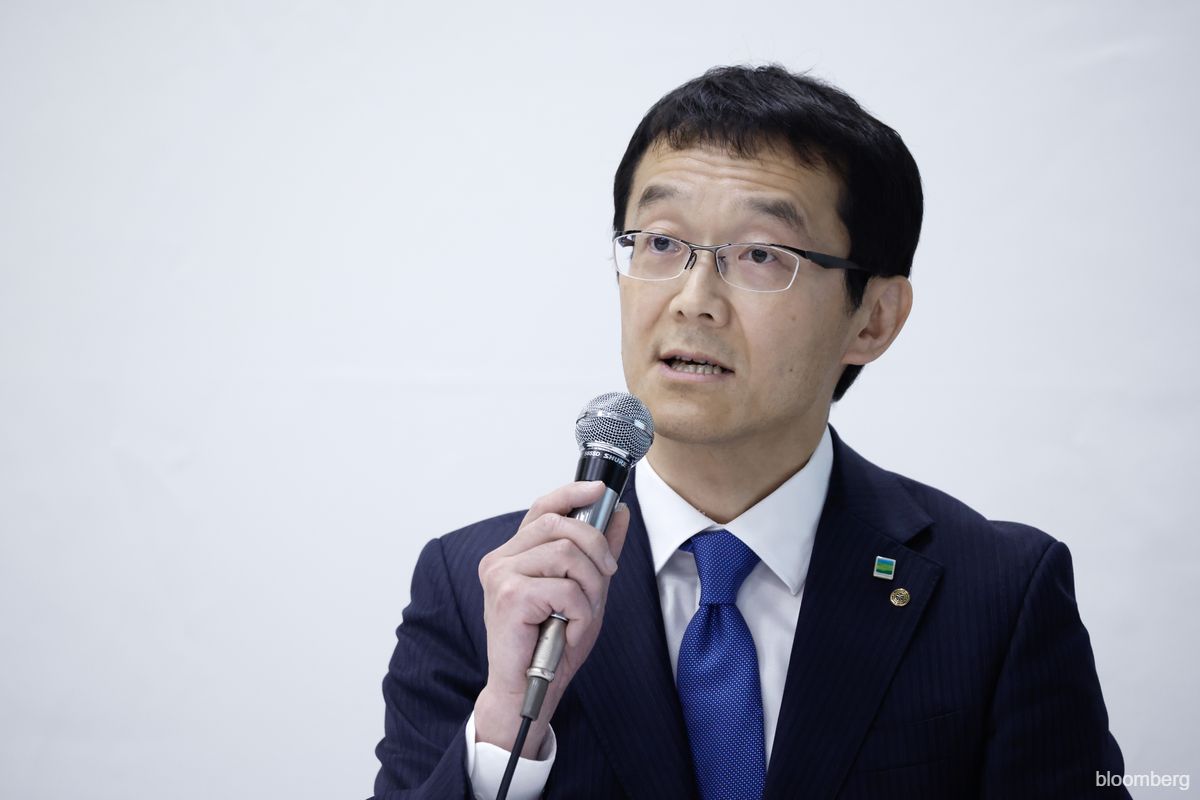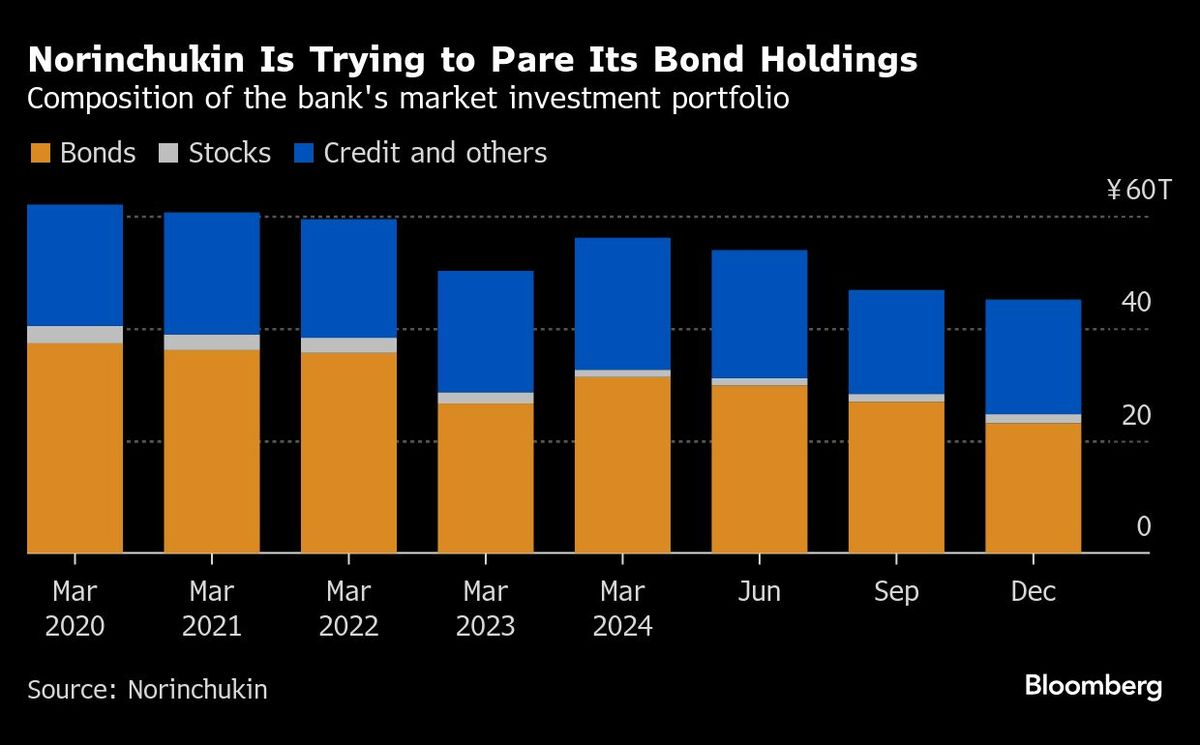
Norinchukin Bank said its chief executive officer Kazuto Oku will step down at the end of March.
(Feb 20): Norinchukin Bank widened its loss forecast and named a new chief executive officer as the Japanese lender tries to recover from its foreign bond investment debacle.
Taro Kitabayashi, who is currently chief financial officer, was chosen to become CEO on April 1, replacing Kazuto Oku, the bank said in a statement on Thursday, confirming reports from earlier this week.
Norinchukin said it may post a loss of as much as ¥1.9 trillion (US$12.7 billion or RM59.04 billion) in the year ending March, more than the ¥1.5 trillion it had previously projected. It expects to return to profit next fiscal year with net income somewhere between ¥30 billion and ¥70 billion.
The promotion of Kitabayashi, 54, comes after Norinchukin became one of the most prominent victims of a surge in US interest rates, which drove down the value of its foreign bond holdings and pushed its dollar-funding costs higher than the returns from those securities. He will face calls to diversify the bank’s US$300 billion investment portfolio and bring in more outside talent.
“We would like to correct our portfolio that has been tilted toward interest-rate assets and balance that with non-rates assets,” Kitabayashi said at a news briefing in Tokyo. “This is a very heavy responsibility.”
In addition to the CEO, the bank announced a new lineup of top managers from internal ranks. It set up new director and senior managing officer roles to speed up decision-making and enhance risk management.
That comes after a government panel last month urged Norinchukin to diversify its portfolio, boost risk management and increase board members with experience in financial markets, including outsiders.
The bank will consider hiring outside professionals, a move that is “critical” at a time of intensifying competition for talent, Kitabayashi said. Norinchukin must reshape its portfolio in a way that makes it resilient to rate shocks in both directions, he said.
“The incoming CEO needs to show that the bank understands risk and is able to manage the myriad risks that it faces,” said Pri De Silva, a Bloomberg Intelligence senior credit analyst. “The new CEO would also need to steer the bank to reverse its negative carry-related ongoing losses and return the firm to consistent profitability.”
Oku, 65, said he stepped down to take responsibility for the losses. He said he had been contemplating resigning for about three years as paper losses mounted, but stayed on to oversee a capital raise that it has completed. He has been at the helm since June 2018.
The Tokyo-based bank earlier this month reported losses of ¥1.4 trillion for the first nine months of its fiscal year. It also reported ¥1.57 trillion in paper losses on its bond holdings.
Uploaded by Chng Shear Lane
- Malaysia hit with 24% US reciprocal tariff effective April 9
- Malaysia won’t retaliate, will negotiate with US on tariffs — Miti
- Apple production hubs, including Malaysia, hit by tariffs
- Glovemakers rebound as investors see competitive advantages
- Trump’s tariffs on Asean: Nothing to dread, everything to fear
- Rebuilding US infrastructure: Our picks of steel stocks
- Trump's tariffs set to drive up bar bills and cut booze jobs
- Rebuilding US infrastructure: Our picks of steel stocks
- Gas pipeline fire: 'Home safety first, too early for legal action', says residents' association
- Investors dive for cover as Trump tariffs skittle stocks


